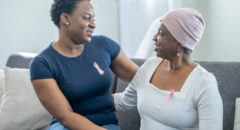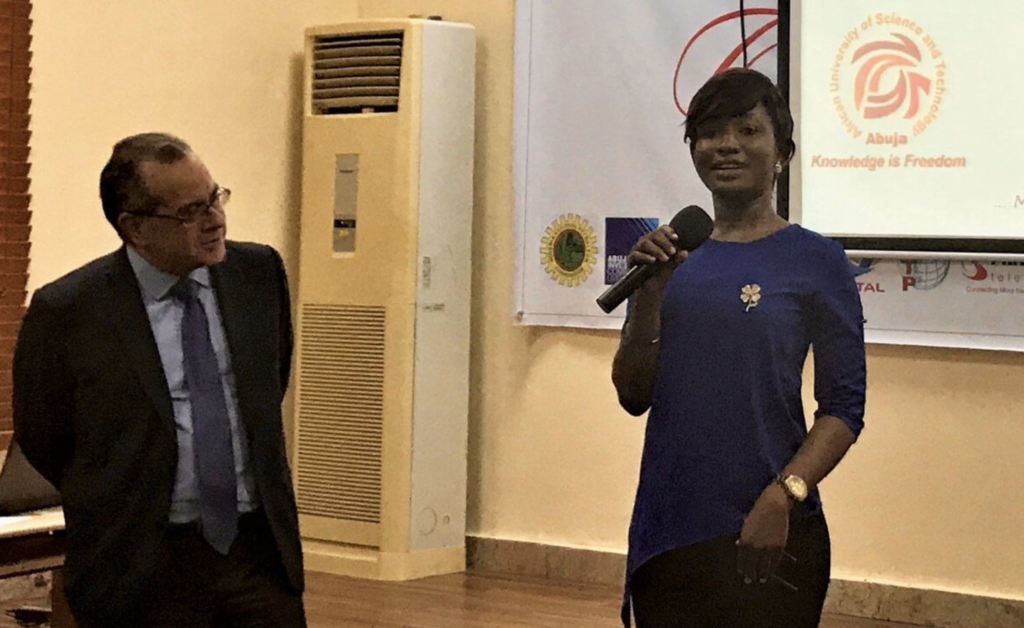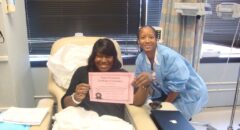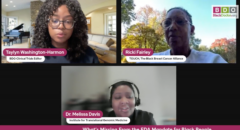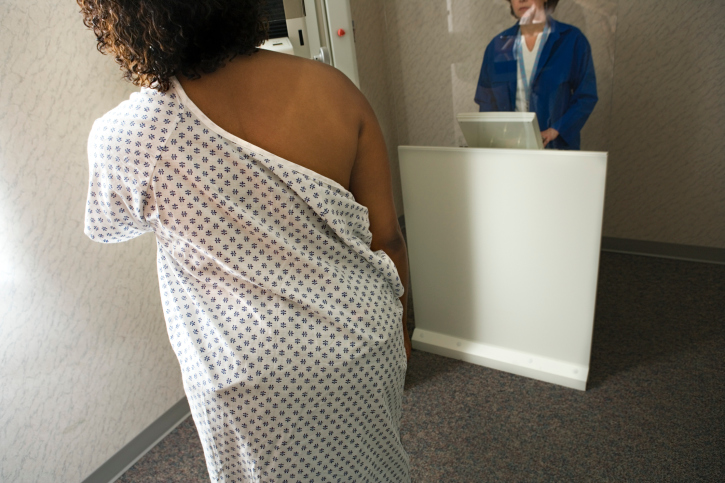 There are many “silent killer” medical conditions that we never know we have unless we have our complete physical exams and labs done. Screening tests exist for a reason: to screen. You don’t wait until you have a problem to get tested for the major medical conditions—you get preventive testing.
There are many “silent killer” medical conditions that we never know we have unless we have our complete physical exams and labs done. Screening tests exist for a reason: to screen. You don’t wait until you have a problem to get tested for the major medical conditions—you get preventive testing.
So, I decided, I’m going to get an early mammogram. I’m 37 years old, without any significant family history of breast cancer, fortunately, which generally puts me at low risk. I’ve recently stopped birth control pills and breastfed two babies, which also puts me at low risk. However, I was still nervous.
I treat many female patients, of all ages, and I’ve diagnosed a handful with breast cancer. Some of these women had “classic” or “textbook” risks, such as being in their late 40-60s with a family history or having an abnormal lump they found during a self exam. However, at least two or three patients within the past couple of years had zero risks. As a matter of fact, one that struck me as a surprise was one of my patients who was healthy as a horse. She was in her 30s, didn’t smoke, wasn't on birth control, worked out all the time and no medical issues other than bloody discharge from the nipple. We sent her for an ultrasound and mammogram, her first one ever, really just as a precaution, and it was positive for cancer. I was as astounded as she was. She looked just like me.
I’ve asked friends and family and the majority of them know someone who has been affected by cancer in their 30s or 40s, without any family history of cancer.
Screening Guideline Changes: Too Late?
What has caused controversy recently is the change in the recommendations for when to start and how often to do mammograms. Within the last five years, the guidelines have changed, stating that we should wait until age 50 to start doing mammograms. This would mean not starting at 40, which is what I was accustomed to doing. The frequency was to do them every other year, which would be different from my practice as well.
Generally speaking, I would start at age 40 and do them every year or every other year for screening. For those who have significant family history, I would start at age 35. With the new guidelines and waiting, what happens to all of the 30 and 40 year olds that we may miss? Needless to say, I’ve been a bit of a rebel with these new rules. Now, I say maybe waiting until the early 40s is ok, but I’m definitely not waiting until 50 to screen my patients.
Then, there’s this thing with self-exams. In general, I would teach all women how to examine their own breasts beginning with young adulthood. You would think, “The earlier, the better,” with being comfortable and becoming comfortable with feeling your breasts. However, with the new mammogram guidelines also came the recommendation AGAINST doing self exams. Yes, you read correctly—-against. I don’t feel great about that one either.
My First Mammogram
Thankfully my self exam was normal without any lumps. I asked my friend, who is also an OB/GYN my age, about mammograms and she’s already had her first one. So, I went.
It wasn’t bad at all! I had the new and improved 3D version, which gives a little less squeeze but does last a little longer. It didn’t hurt at all. For my ladies that have had to wear a really tight bra or for those who have breastfed, this was nothing. The tech that I had was lovely.
I’m sure it makes a difference to have a nice tech to talk you through the procedure and laugh with you a little bit. I asked her what she thought the fear was with getting mammograms, and she said it had a lot to do with a patient’s anxiety level. The more afraid a woman was to get one done or what might be found, the more painful it seemed to be. Sure, I was nervous, too. You never know what you might find in there. However, as far as physical pain goes, it did not hurt.
She also forewarned me that since it was my first one, I would likely be called for a follow up. There was no previous one to compare this one to, so if anything is found, most women get called back after their first mammogram. Fortunately, mine was normal.
Wouldn’t you rather know than not know?



